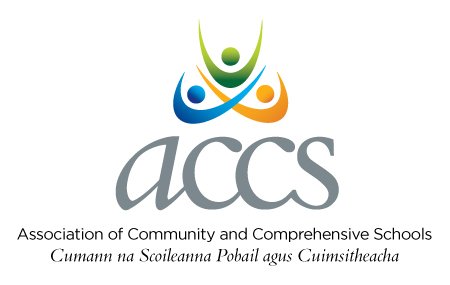ACCS/Info Bulletin 31/21
Ransomware and Phishing Attacks.
As you are all no doubt aware, Ransomware and Phishing attacks are currently at a very high level and organisations and companies in Ireland are being targeted by what are reported to be organised criminal gangs. There are a number of steps schools can take to protect against such attacks which are listed below.
But first, what is Ransomware and what is Phishing?
Phishing is the fraudulent practice of sending emails purporting to be from reputable companies in order to induce individuals to reveal personal information, such as passwords and credit card numbers.
Ransomware is a type of malicious software designed to block access to a computer system until a sum of money is paid. The software is usually introduced into a system using Phishing techniques.
There are a number of factors that might make you the target of a ransomware attack.
The device used is no longer state-of-the-art
The device has outdated software
Browsers and/or operating systems are no longer patched
No proper backup plan exists
Insufficient attention has been paid to cybersecurity, and a concrete plan is not in place
How to prevent a Ransomware attack/infection
Never click on unsafe links:
Avoid clicking on links in spam messages or on unknown websites. If you click on malicious links, an automatic download could be started, which could lead to your computer being infected.Avoid disclosing personal information:
If you receive a call, text message, or email from an untrusted source requesting personal information, do not reply. Cybercriminals who are planning a ransomware attack might try to collect personal information in advance, which is then used to tailor phishing messages specifically to you. If in any doubt as to whether the message is legitimate, contact the sender directly.Do not open suspicious email attachments:
Ransomware can also find its way to your device through email attachments. Avoid opening any dubious-looking attachments. To make sure the email is trustworthy, pay close attention to the sender and check that the address is correct. Never open attachments that prompt you to run macros to view them. If the attachment is infected, opening it will run a malicious macro that gives malware control of your computer.Never use unknown USB sticks:
Never connect USB sticks or other storage media to your computer if you do not know where they came from. Cybercriminals may have infected the storage medium and placed it in a public place to entice somebody into using it.Keep your programs and operating system up to date:
Regularly updating programs and operating systems helps to protect you from malware. When performing updates, make sure you benefit from the latest security patches. This makes it harder for cybercriminals to exploit vulnerabilities in your programs.Use only known download sources:
To minimize the risk of downloading ransomware, never download software or media files from unknown sites. Rely on verified and trustworthy sites for downloads. Websites of this kind can be recognized by the trust seals. Make sure that the browser address bar of the page you are visiting uses "https" instead of "http". A shield or lock symbol in the address bar can also indicate that the page is secure. Also exercise caution when downloading anything to your mobile device. You can trust the Google Play Store or the Apple App Store, depending on your device.Use VPN services on public Wi-Fi networks:
Conscientious use of public Wi-Fi networks is a sensible protective measure against ransomware. When using a public Wi-Fi network, your computer is more vulnerable to attacks. To stay protected, avoid using public Wi-Fi for sensitive transactions or use a secure VPN service.Be aware of your surroundings when in public:
No matter how well you know the place you are in, never leave your devices unattended when in public. Your phone’s lockscreen or laptop’s password present only minor challenges to the determined hacker. If possible utilise biometric protections like fingerprint recognition. If your device is stolen contact the Gardaí and your IT administrator immediately.Never leave passwords lying around:
You should never keep passwords written down. However, in the real world, people do, so to minimize the risk of this, lock all passwords away in a lockable drawer when not present in the office. Don’t leave them lying around on desks or on post-it notes stuck to the side of your monitor/tower/phone. But it would be much better to commit them to memory and safely destroy the paper they were written on. A secure way to manage your passwords is through free password manager software such as www.lastpass.com.
Is mise, Le mór mheas,
John Irwin, GENERAL SECRETARY.
